|
|
 |
 |
 |
 |
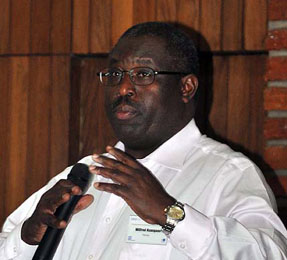 |
| Wilfred Nyangena, Environment for Development Centre, Kenya, stressed that the undervaluation of forest resources implies a low budget allocation to the forestry sector. |
|
 |
 |
 |
 |
|
 |
 |
 |
 |
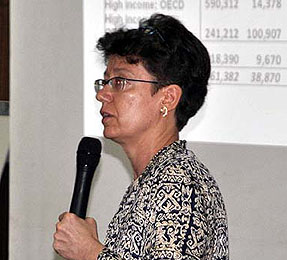 |
| Glenn-Marie Lange, World Bank, highlighted that the natural capital approach to sustainable development implies that development per capita of wealth needs to increase. |
|
 |
 |
 |
 |
|
 |
 |
 |
 |
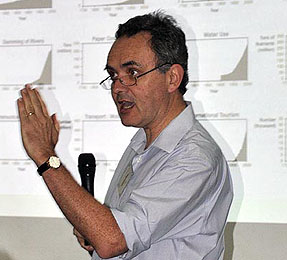 |
| Steve Bass, IIED, presenting an overview of emerging green economy initiatives, highlighted four possible objectives of green economy work: economic resilience; biosphere protection; equity and social justice; and accountability. |
|
 |
 |
 |
 |
|
 |
 |
 |
 |
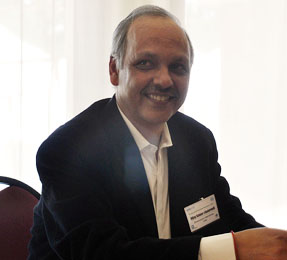 |
| Vijay Chaturvedi, Development Alternatives, noted that the ILO defines "green jobs" as ones that reduce the environmental impacts of enterprises and sectors to a sustainable level across all sectors. |
|
 |
 |
 |
 |
|
|
 |
 |
 |
 |
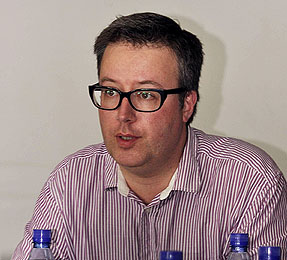 |
| Tom Bigg, IIED, presenting on the Green Economy Coalition and its upcoming consultations, outlined that the Coalition aims to address social needs and sustaining the biosphere within a green economy framework. |
|
 |
 |
 |
 |
|
|
|